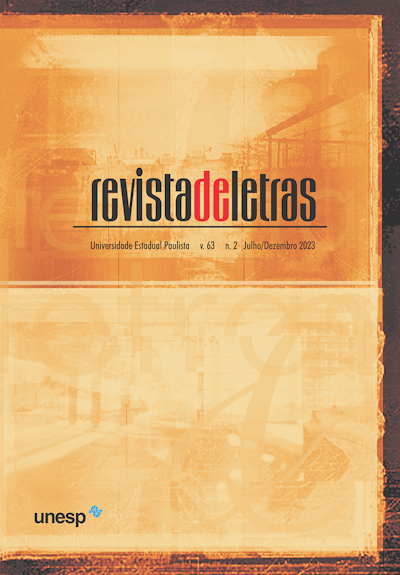A revolução linguística na Semana da Arte Moderna
uma análise da influência da língua portuguesa nas manifestações artísticas
Palabras clave:
Arte Moderna, Revolução Linguística, Vanguarda CulturalResumen
Este estudo propõe uma análise aprofundada da Semana da Arte Moderna de 1922 no Brasil, focalizando a influência da língua portuguesa nas manifestações artísticas que marcaram esse movimento revolucionário. A metodologia adotada é a pesquisa bibliográfica, permitindo uma investigação crítica de obras literárias, manifestos, críticas contemporâneas e documentos históricos. A pesquisa é organizada em cinco seções, num primeiro momento apresenta-se uma introdução à Semana da Arte Moderna e se aprofunda as circunstâncias históricas e culturais que deram origem à Semana da Arte Moderna, destacando seus objetivos e importância no cenário artístico; no segundo momento, aborda-se as raízes linguísticas, a saber, a influência portuguesa nas expressões artísticas modernistas, nesse sentido, explora-se como a língua portuguesa fundamentou novas formas de expressão artística a partir de aspectos linguísticos em obras literárias, poesias e manifestos; por conseguinte; aborda-se a Vanguarda Literária e as transformações na escrita e na poesia; num quarto momento, tematiza-se o regional e universal, numa perspectiva que abarca a diversidade linguística nas Artes Visuais e Cênicas, destacando-se a diversidade linguística na expressão artística e na construção de identidades culturais; por fim, reflete-se sobre as críticas, a recepção e a resposta da sociedade à Revolução Linguística, neste item, especificamente, explora-se as críticas contemporâneas e a recepção pública às inovações linguísticas, revelando como essas mudanças foram percebidas e discutidas na sociedade da época. Ademais, considera-se que análise proporcionou não apenas uma compreensão mais profunda da influência da língua portuguesa nas manifestações artísticas modernistas, mas também destacou a perenidade e a importância desse fenômeno cultural para as gerações futuras.
Descargas
Publicado
Número
Sección
Licencia
Os manuscritos aceitos e publicados são de propriedade da Revista de Letras. Os originais deverão ser acompanhados de documentos de transferência de direitos autorais contendo assinatura dos autores.
É vedada a submissão integral ou parcial do manuscrito a qualquer outro periódico.
A responsabilidade do conteúdo dos artigos é exclusiva dos autores.
É vedada a tradução para outro idioma sem a autorização escrita do Editor ouvida a Comissão Editorial.

